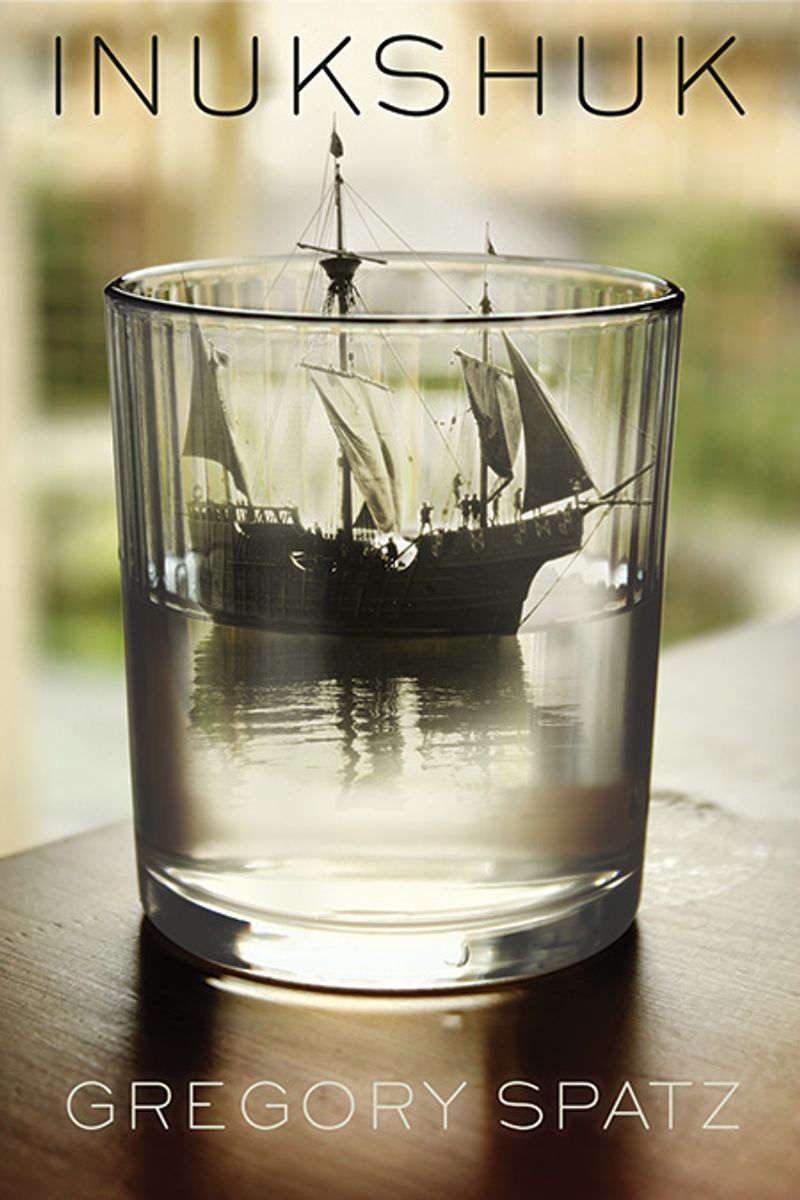Shadowed by the Inuit word for stones resembling ‘a human form,’ a marker to reassure that ‘Someone was here,’ Spatz portrays a discordant family crippled by emotional and physical distance. . . . This tale of familial dysfunction is carefully interwoven with the historical retelling of Sir Franklin’s quest, resulting in a layered journey that is hauntingly honest and emotionally resonant.
Inukshuk
John Franklin has moved his fifteen-year-old son to the remote Canadian town of Houndstitch to make a new life together after his wife, Thomas’ mother, left them. Mourning her disappearance, John writes poetry and escapes into an affair, while Thomas, isolated and bullied, withdraws into a fantasy recreation of the infamous Victorian-era arctic expedition led by British explorer Sir John Franklin.
A poignant tale of the vulnerability of adolescence interspersed with powerfully evoked scenes of the legendary Franklin crew’s descent into despair, madness, and cannibalism on the Arctic tundra, Inukshuk offers readers a modern family drama as well as a compelling historical adventure.
Library Journal Best Indie Novel of the Year

Ebook
- ISBN
- 9781934137482
Paperback
- ISBN
- 9781934137420
Gregory Spatz discusses the discovery of the HMS Erebus and his Franklin expedition-inspired novel Inukshuk with Doug Dorst at the Brooklyn Rail.
Read an excerpt from Inukshuk and a self-interview with Gregory Spatz at The Nervous Breakdown.
Read about Gregory Spatz’s relationship to Sir John Franklin at Native Home of Hope, find out how Spatz’s path to writing began at an independent bookstore in San Rafael, California (via NW Book Lovers), and explore the research behind Inukshuk at Necessary Fiction and in Glimmer Train.
Discover how Gregory Spatz persisted through years of New Yorker rejections at The Quivering Pen and why the second movement of Beethoven’s 7th Symphony is “the most exquisitely, perfectly sad pieces of music [he has] ever heard” (via New England Review).
Gregory Spatz is the author of the novels Inukshuk, Fiddler’s Dream, and No One But Us, and the short fiction collections Wonderful Tricks and Half as Happy. He has also written for the Oxford American and Poets and Writers and his stories have appeared in many publications, including The New Yorker. He is the recipient of a Washington State Book Award, Spokane Arts Commission Individual Artist of the Year Award, and National Endowment for the Arts Literature Fellowship. A graduate of the Iowa Writers’ Workshop, he teaches in the MFA program at the Inland Northwest Center for Writers at Eastern Washington University. When he’s not writing or teaching, Spatz plays fiddle and tours with Mighty Squirrel and the internationally acclaimed bluegrass band John Reischman and The Jaybirds.
visit author page »Praise for Inukshuk
Inukshuk is a feat of empathy and honesty, a taut tale of fear and resentment and other threats from within, meticulously observed and fearlessly rendered in vivid, authoritative, gripping prose. It’s a virtuoso performance.
— Doug Dorst, author of Alive in Necropolis and The Surf Guru
Gregory Spatz’s prose is as clean and sparkling as a new fall of snow.
— Janet Fitch, author of White Oleander and Paint it Black
At its heart Inukshuk is about family. But Spatz has transfigured this beautifully told, wise story with history and myth, poetry and magic into something rarer, stranger and altogether amazing. A book that points unerringly true north.
— Karen Joy Fowler, author of The Jane Austen Book Club and Wit’s End
One of the most innovative and unusual fictional incarnations I’ve ever read of the persistent allure of Sir John Franklin’s final, fatal Arctic voyage. It’s a remarkable accomplishment.
— Russell Potter, author of Arctic Spectacles
An incredibly honest account of a relationship between a father and a son after their wife and mother left them. . . . Spatz does a superb job finding a balance between the vivid descriptions of the main characters’ imaginary worlds and the moments of acute awareness they both have of their painful situation. A very convincing and beautiful novel.
— Pierre Camy, Schuler Books & Music (Grand Rapids, MI)
You draw in a deep breath. Your day has been hectic. You feel overwhelmed and are longing for a simple moment where life will just stop. You pick up a book and begin reading. Your quiet comes. The words rest on the page, pulling you into the lives of each character. Suddenly your day melts away and you no longer care about yourself—you are transported. This is what it’s like to read Inukshuk.

